Saddle up for Beyonce’s next transformation
As the superstar releases her first country album, Cowboy Carter, it’s all down to her Texan roots - and a huge craze for America’s storytelling ballads.
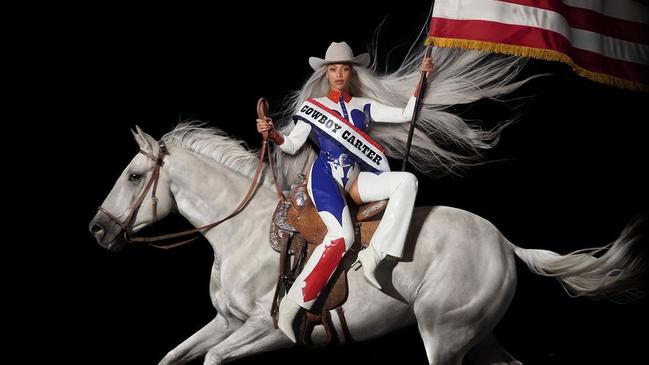
On a recent trip to Austin, Texas, I ended up one night in a honky-tonk on the edge of the city called Sam’s Town Point. It looked like the kind of joint where a bunch of good old boys could be found chugging Budweiser before having a huge fight. Instead there was a denim-clad band playing country classics, college-age girls dancing with grizzled old dudes, a more racially mixed crowd than you might expect, and the general feeling that this was a happening scene. You couldn’t help but wonder if Texas’s most famous daughter hadn’t popped in one night for inspiration, before driving to her home town of Houston to get going on her new direction.
Today (Friday) is the release of Beyonce’s country album, Act II: Cowboy Carter, the second instalment in a planned trilogy that began with Renaissance. It features Texas Hold ‘Em, which made Beyonce the first black woman to top Billboard’s country chart, and 16 Carriages, a ballad in which images of pioneers crossing the prairie form a metaphor for the singer’s graft, albeit through the tale of a luckless woman trying to make it while surviving on next to nothing. Beyonce’s great skill is in inhabiting whatever style she takes on, and Cowboy Carter is no different.
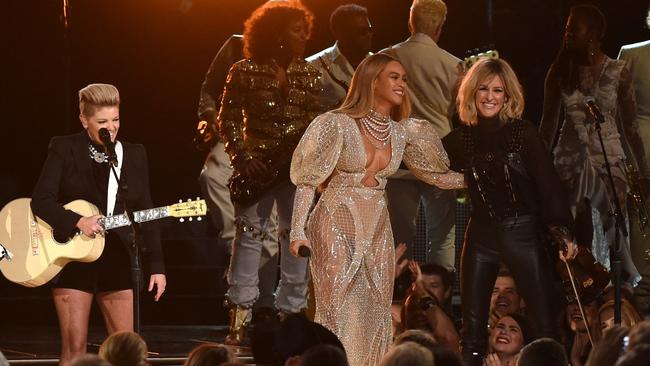
She is not the only superstar leading her horse to the rodeo. In December 2023 Lana Del Rey covered John Denver’s classic Take Me Home, Country Roads, a signpost to a forthcoming album with the none-more-country name of Lasso. Texas’s Kacey Musgraves and Kentucky’s Chris Stapleton have brought touches of soul, blues and psychedelia; the acoustic singers Noah Kahan and Zach Bryan have become Gen Z favourites; and the latest TikTok phenomenon is Austin by Dasha, a pop-country tale of a woman scorned that has inspired a line dancing revival. According to The Economist, last year country accounted for more than a third of streams of the Top 50 songs on Spotify in America.
But Beyonce’s move into country music also brings up new questions of race and culture that go to the heart of American life. “It was born out of an experience that I had years ago where I did not feel welcomed,” she wrote on her website last week. “But, because of that experience, I did a deeper dive into the history of country music and studied our rich musical archive.”
She was most probably referencing 2016’s Country Music Association awards, where she performed the country-tinged Daddy Lessons with the (formerly Dixie) Chicks. The genre’s more traditional enthusiasts reacted much as Glastonbury’s dyed-in-the-wool regulars had to the news that her husband, Jay-Z, was headlining in 2008: not with gushing enthusiasm.
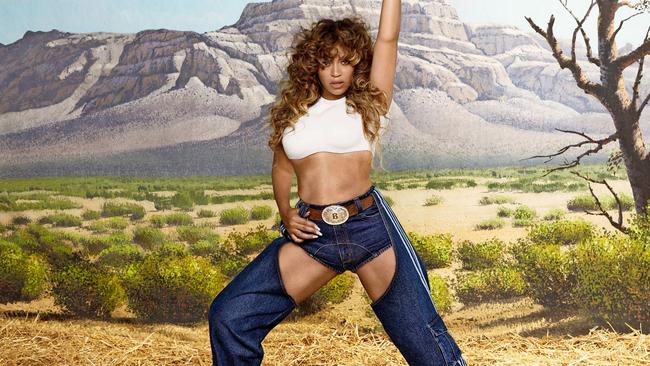
“The criticisms I faced when I first entered this genre forced me to propel past the limitations that were put on me,” Beyonce continued on her site. “My hope is that years from now, the mention of an artist’s race, as it relates to genres of releasing music, will be irrelevant.” On Instagram Tina Knowles reminded people that her daughter had grown up with country: “When people ask, why is Beyonce wearing cowboy hats? ... it’s been there since she was a kid, we went to rodeos every year and my whole family dressed in western fashion.”’
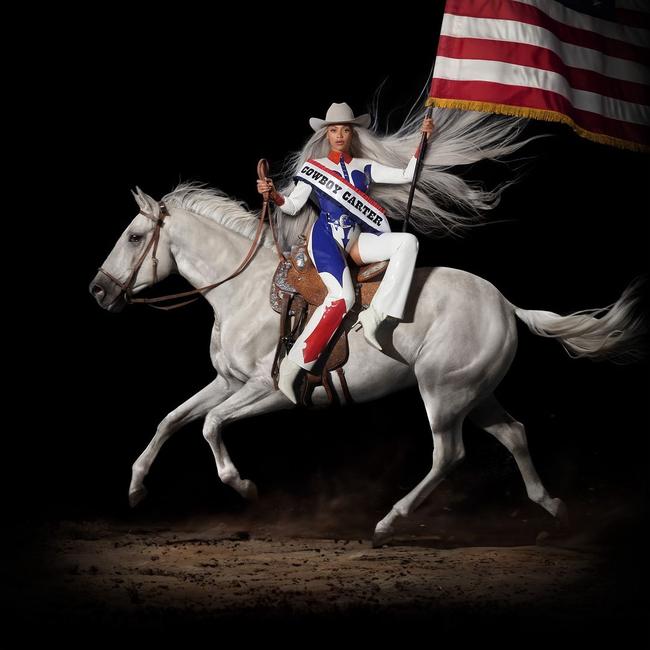
The cover of Cowboy Carter features Beyonce on a white horse, holding the Stars and Stripes while bedecked in a cowboy hat and a red, white and blue rodeo suit - iconography associated with white, conservative America. In an election year when political tensions are higher than ever, is Beyonce reclaiming national symbols more traditionally associated with white dominance? Not everyone thinks so: the rapper Azealia Banks has accused her of indulging in “white woman’s cosplay” and “reinforcing the false rhetoric that country music is a post civil war art form”.
She’s hardly the first singer to challenge country conventions: Lil Nas X, a gay black man, upended traditions with his worldwide hit Old Town Road in 2018, while Kane Brown is a biracial country superstar from Tennessee who has collaborated with everyone from the Latin pop star Camila Cabello to the EDM DJ Marshmello. Beyonce, however, is on a level of superstardom matched only by Taylor Swift, and her latest move raises the question of why country became so white-dominated in the first place.
Contributing banjo and viola to Texas Hold ‘Em is Rhiannon Giddens, a North Carolina-born, Ireland-based musician who in 2005 formed the black bluegrass three-piece the Carolina Chocolate Drops. “Imagine realising what you had been told your entire childhood was actually not true,” Giddens said when I met her in Limerick in 2019 of her discovery that the roots of country lay not only in Appalachian hillbillies adapting Irish and Scottish folk music but also in the black string bands plying their trade in the American south throughout the 18th and 19th centuries. “Until the 1900s, black string bands were playing on the plantations for the balls and also for their own folks. The banjo, which has its roots in Africa, is developing as this is happening.”
Giddens put a chunk of the blame on Henry Ford, founder of the Ford motor company and a noted racist, for the suppression of country’s black roots. “Hillbilly is promoted as the pure white music, even though half the string bands are black. There are fiddle contests that black people aren’t allowed to enter, and they’re the best fiddle players. You have Henry Ford putting up posters of white people with the message, ‘Don’t you want to go back to the days of the old barn dance?’ And I’m thinking, ‘Yeah, and the band would have been black.’ This is how the black string band tradition has been so successfully erased. There were lots of black cowboys too. They just got written out of history.”
There have been plenty of high-profile black entertainers contributing to country music in the age of BB (Before Beyonce). In 1962 Ray Charles released the album Modern Sounds in Country and Western Music, recorded in tribute to the Saturday evenings Charles spent as a child, listening to the Nashville radio show The Grand Ole Opry. Tina Turner’s 1974 album Tina Turns the Country On! featured a beautiful rendition of Kris Kristofferson’s Help Me Make It Through the Night, while Charley Pride’s baritone made him the biggest African-American singer in country from the early Seventies onwards.
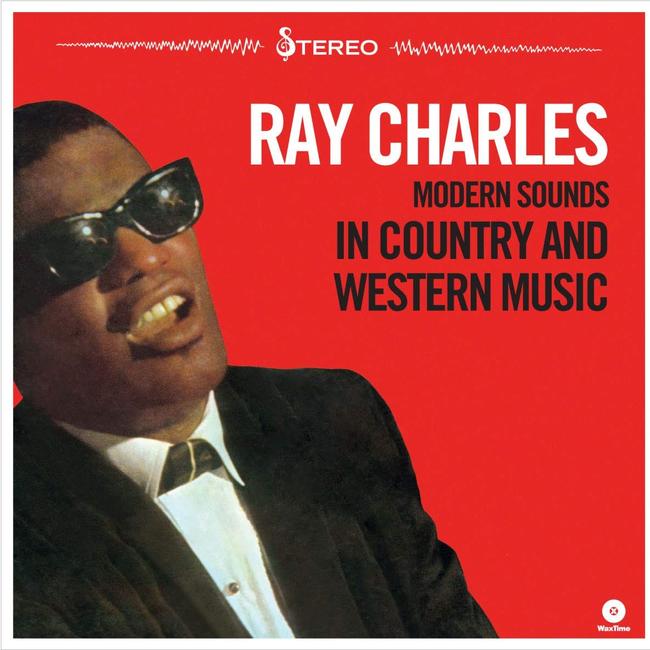
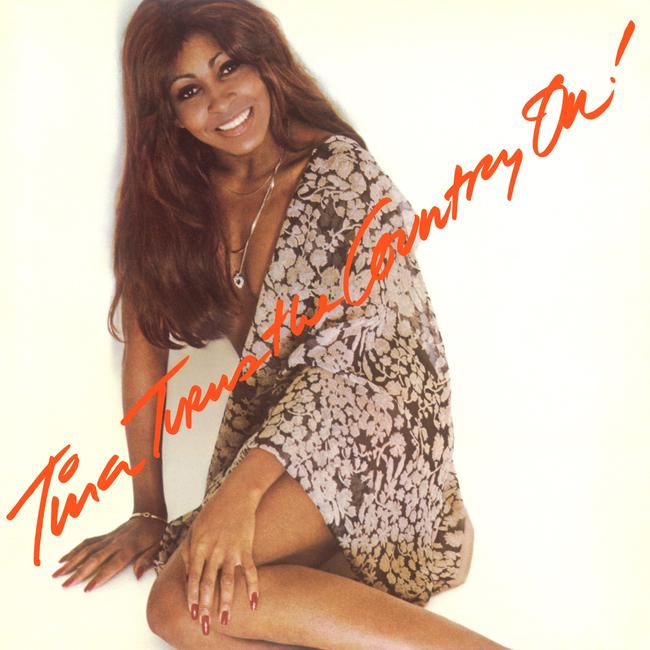
Beyonce’s embrace of country doesn’t just mark a sea change in its attitudes toward race, however. As a canny businesswoman aware of expanding her commercial reach, she is also turning to it at a time when its stock has never been higher. London’s British Summertime concerts traditionally tell us which artists are big enough to pull 65,000 people into Hyde Park: recent years have featured sets from Adele, the Rolling Stones and Bruce Springsteen. This year, for the first time, two country stars are headlining. The Canadian country-pop queen Shania Twain, also high on the bill at Glastonbury festival, and the Tennessee everyman Morgan Wallen. Country 2 Country has become a three-day festival that sells out the O2 in Greenwich for three nights every March, while the British magazine Holler Country was founded in 2019 after the festival apps company Festyvent realised how engaged country fans were.
“Ten years ago, rap took over the Billboard charts,” Ross Jones, the editor of Holler Country, says. “Now country is having that moment. If you take an artist like [the Louisiana singer] Lainey Wilson, her sound is traditional country with a pop production. It means you could hear it in the honky-tonks, but also play it next to Texas Hold ‘Em.”
How does all this sit in the UK? According to Milly Olykan, VP for international relations at the Country Music Association, demand here is higher than ever: “In 2023 consumption was 40 per cent up on 2022. It is an exciting time.”
Perhaps this is because of our lack of rodeos and honky-tonks. In 1994 Tom Bridgewater founded Loose, the UK’s only dedicated country label. It went on to prove remarkably good at spotting talent: the singer Sturgill Simpson and the Handsome Family are two of its big hitters.
“Living in the city, stuck to our phones, we need country music more than some hillbilly in the woods, shooting at racoons,” Bridgewater claims of its appeal here. “Once you get country music you really get it, because a good song with a well-told story becomes an addiction, even if that story is set in El Paso rather than Peterborough. Besides, it has never been unfashionable. Look through old copies of Vogue and it’s only a matter of time before you’ll see Kate Moss in cowboy boots and a stetson.”
As Jeff Smith, the head of music at Radio 2, points out, the BBC station has been championing country ever since Bob Harris started presenting The Country Show in 1999, giving Swift a session along the way in 2011. “When we first got involved in Country 2 Country [Harris broadcasts from the festival], we couldn’t even get the big American artists over here,” Smith says. “Now they have realised how big the audience is, and how it is crossing over. Texas Hold ‘Em has been on our Radio 2 A-list, while a young singer like Kahan makes it on to both Radio 1 and Radio 2. Country music is not overly clever, not overly sophisticated, and its home town appeal is connecting with British audiences who appreciate its authenticity.”
In that case, can British country artists break through? “God knows we’ve tried,” Smith says. “We’ve had the Shires, Ward Thomas ... It is hard for British artists to resonate with an American audience. But it happened for Keith Urban and he’s Australian, so I hope we can get there.”
Now that Beyonce, superstar glamazon of shimmering high-octane pop, has gone country, the sky - or at least the height of your ten-gallon hat - is the limit.

To join the conversation, please log in. Don't have an account? Register
Join the conversation, you are commenting as Logout